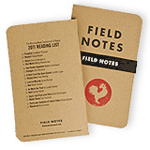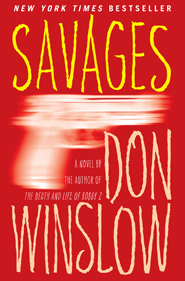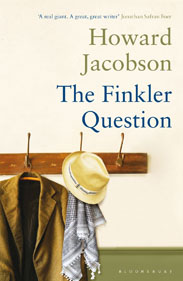-
March 10, 2011
Opening Round
-
Commentary by
Kevin Guilfoile & John Warner
-
Today’s Winner:
1The Finkler Question
John: Like Rosecrans Baldwin, I didn’t laugh once while reading The Finkler Question, but unlike him, I hold a grudge. I love comic novels, particularly ones that then whipsaw you with a little old-fashioned pathos, which made Finkler sound like it was right in my wheelhouse. I love them so much I did my best to write one. But when something is billed as a comic novel, call me crazy, I want laughs. To be fair, I only read just over a hundred pages, so maybe there are some yuks deeper into the book, and I’d be remiss if I didn’t account for varieties in taste, but Judge Baldwin’s favorable take despite the absence of LOL-ing maybe indicates that my encounter with The Finkler Question has been foiled by wrong expectations, the same way some people may express disappointment when Freedom doesn’t live up to Greatest Novel of All-Time hype. I was indeed sold the wrong novel.
Kevin: Every year in the ToB there is a book that just defeats me. And there is usually one of those, “Baby it’s not you, it’s me” books, as well. The Finkler Question ended up being both for me. I couldn’t keep the characters straight and I wasn’t sure why I was reading about them. Reading it made me feel like a Kardashian on a date with John Nash. It seemed like it was probably smart but I just couldn’t bring myself to care about what it was saying.
John: Independent of that, for me, Finkler lacks incident, or rather it has one incident, a mugging, that is apparently important because we keep circling back to it, but why it might be important or that I should feel its importance is beyond me. The characters are, again, for me, almost indistinguishable. Long passages of two and three-way conversations glazed right by me. Judge Baldwin calls the writing gorgeous, but I found it strangely inert, like Hugh Hefner in bed.
 Buy anything from Field Notes from now until the end of the ToB and receive a special “reading list” memo book free, while they last. Use coupon code ROOSTER.
Buy anything from Field Notes from now until the end of the ToB and receive a special “reading list” memo book free, while they last. Use coupon code ROOSTER.Maybe if I’d been on a plane with no other reading material, I would’ve kept going, but if I was a judge this round and my choice was between The Finkler Question and Sky Mall, I’d be going with the work that introduced me to the Bigfoot garden yeti sculpture.
Kevin: The other reason I gave up on Finkler was that the pairings came out while I was reading and I saw it was matched up with Savages, and frankly I thought it wasn’t going to be a contest. Savages was one of my favorite books from last year. Because of the kind of novel it is—because genre has a poor record in the ToB, because the pages turn faster than a terrier with a meat tail, because it’s a 302-page novel with 290 chapters—I didn’t really think it would have the muscle to make it through the final round of the tourney. But I thought it would knuckle punch Finkler in the balls and make it eat glass. I was wrong.
John: So Savages became our yearly genre sacrificial lamb, and I’m upset on its behalf, even if lamb is delicious. I was certain it had a better shot than any of our previous genre entries to advance at least a round because Finkler seemed weak, and Savages is a really exciting, funny, violent ride. Savages had me at “hello,” or rather “Fuck you,” which is the entirety of the first chapter. It had Baldwin at “hello” too, but he fell out of love at some point, which I can’t blame him for, but reinforces the arbitrary nature of these things, and how which book gets chosen is perhaps a function of the question the reviewer asks him or herself.
If the question is “which book is better?” that may beget one answer. “Which book did you enjoy more?” could lead to another. I enjoyed the hell out of Savages, Finkler was a chore for the time I spent with it, which for me, also makes it a better book. If the question is “which book do you want on hand if you need to clobber a home invader over the head” then I’m picking Skippy Dies.
Kevin: I won’t deny that the incredible pace of Savages becomes something of a weakness in the final pages—it all wrapped up too quickly for me. But I think both you and Judge Baldwin are underselling the depth of Savages. Not only does the book have terrific characters, each deftly drawn with a minimum of words, but the conflict, between a pair of lovable pot dealers in Southern California and the matriarch of a Mexican drug cartel, is the stuff of classical tragedy. None of them want to resort to violence in this case, but all believe they have no choice. Everyone is compelled to head down a path they know will lead to disaster and neither side can stop it, even though no one wants it to happen. It was, for me, a less ambitious yet far more relevant treatise on contemporary violence than 2666 (not that I’m trying to open that worm-infested can again).
It’s also a pretty good metaphor for the state of Illinois’s finances.
John: 2666, also a great book to clobber someone over the head with.
I’m now wondering if you’ve unintentionally exposed an unfortunate personal bias in how I think, and in turn, talk about books, likely related to a desire to maintain a certain amount of cred (if you will) as a discerning reader of literary fiction. (For the time being, I am employed by an institute of higher learning.) I probably am selling Savages short. Savages is terrific for reasons in addition to the pleasures we expect from a book in the crime/suspense genre. But even that statement has a whiff of pretension since I’m clearly signaling that it’s okay to like it even though it’s a genre book because it’s somehow better than its genre.
These games I’m playing seem kind of silly.
We see so-called genre writers that get to rise above their station all the time, Philip K. Dick, Patricia Highsmith, Elmore Leonard, etc… but it seems as though it’s a kind of lifetime achievement award, a stamp of approval, that makes them safe for non-genre devotees to consume without the requisite nods that while we like these writers, let’s be clear that this doesn’t mean we like the genre as a whole because those books are for other, less discerning people.
When I discuss what literature is with my students, I tell them my own personal definition is writing that seeks to illuminate the world as it is, as opposed to the way we wish it was. I tell them that I see literature as something “non-disposable.” I also tell them that it’s like porn and that I know it when I see it, to which they say, “You watch porn?”
Under this definition, I’m going to have to take someone else’s word that Finkler qualifies, but I’m going to declare that Savages does, whatever label it comes under.
Kevin: As I recover from my first personal disappointment of the tourney, we turn to tomorrow’s match, Jennifer Egan’s A Visit From the Goon Squad vs. Paul Murray’s Skippy Dies.
Kevin Guilfoile is the author of two acclaimed novels, Cast of Shadows and The Thousand, which have been translated into more than 20 languages.
John Warner’s novel, The Funny Man, will be released late September of this year by Soho Press. For the time being, he teaches at Clemson University.

















